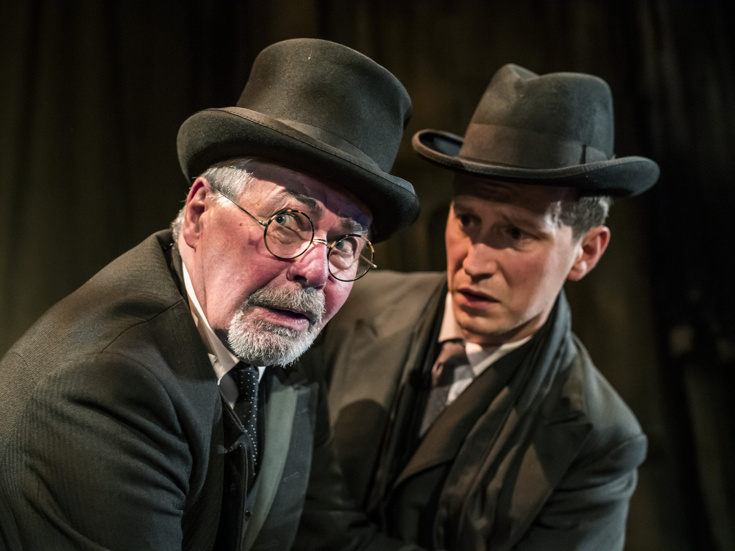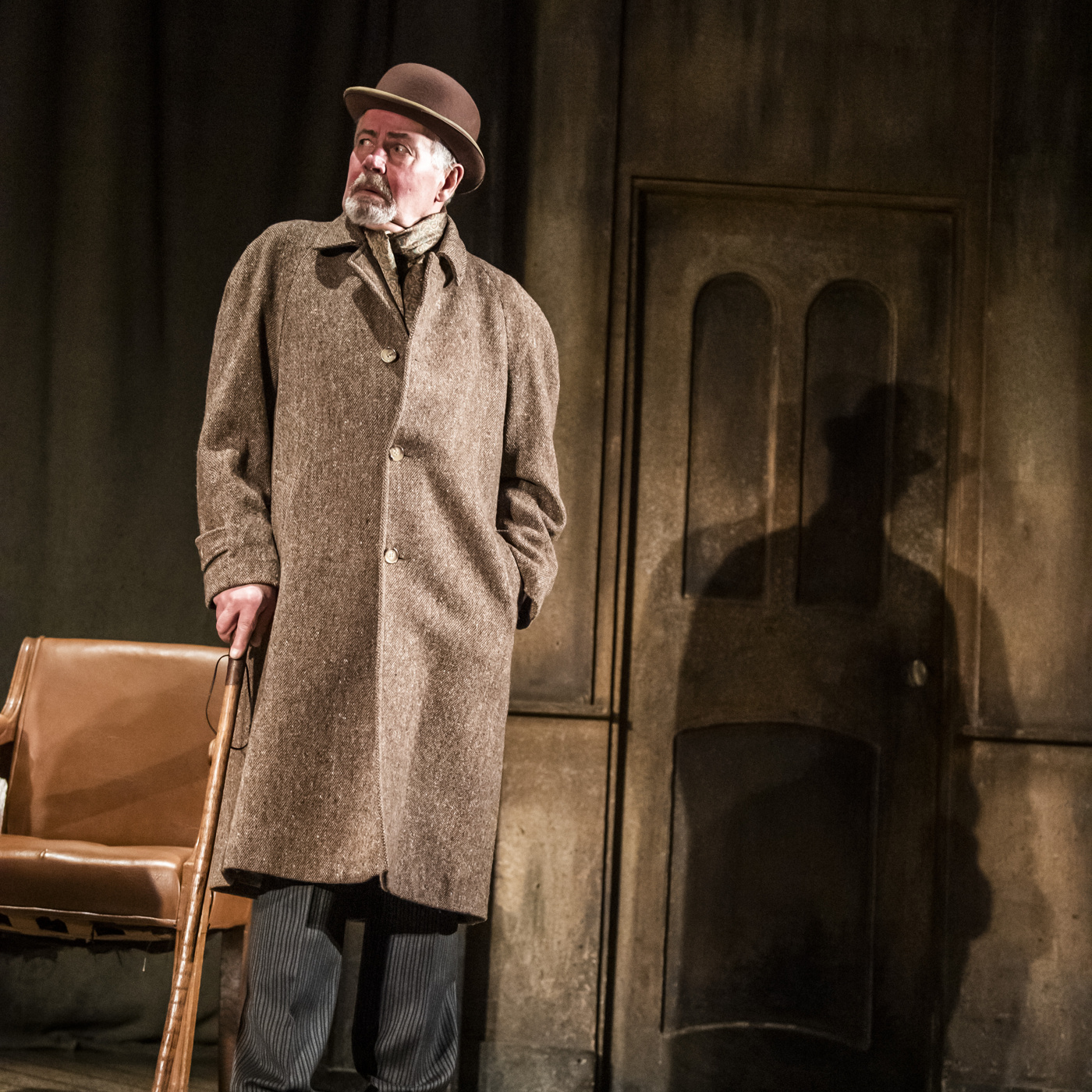West End Star Terence Wilton on The Woman in Black's Enduring Appeal in London and Beyond

(Photo: Tristram Kenton)
The Woman in Black, the theatrical chiller adapted from the Susan Hill novel, celebrated 30 years in the West End last summer and has recently opened to acclaim at the McKittrick Hotel off-Broadway. But its longevity back in Britain means that a great many people have over time got to play either of its two male roles, Arthur Kipps and the younger actor whom Kipps draws into his spine-tingling midst. With the title gaining newfound familiarity in New York, Broadway.com caught up with its current Arthur Kipps, the stage veteran Terence Wilton, backstage at London’s Fortune Theatre to talk about being part once more of a bona fide phenomenon.
What made you return to the role of Arthur Kipps, which you had previously played at the Fortune Theatre in 2017?
This is a good story and a brilliant script and has the most wonderful language: it works both as a piece of drama for just two actors and a hamper and also as a marvelous piece of literature in the Gothic style. It ticks a lot of boxes.
What is it like purely from an acting point of view?
I like it because the journey is so honest. The acting every night starts from scratch, which means that the choices are all ours. It’s also a fantastic aerobic and vocal and gymnastic workout. To be bounding across a London stage at my age is gorgeous!
How has it felt returning to the production this time out—from the perspective of a week into your current contract?
When I reread the script with a view to coming back, things were going off like lights! Suddenly it became so much simpler and quicker. [Co-star] Max [Hutchinson] and I have taken nearly 10 minutes off the running time and are playing it with pace but an equal amount of detail. I’m grateful to have the chance to play it at speed, and Max is a real front-foot actor; he doesn’t let me sit back in any way.
How do the contracts work in a show like this?
They’re for fixed terms of nine months, after which you have to go away and lie down in a darkened room [laughs]. There are various actors—not just me—who have come back to the play over the years because they enjoyed it.
Did you know the play before you first appeared in it three years ago?
Yes, I knew Johnny Nettleton very well, who had played Arthur Kipps some years ago, and I can remember being in the dressing room from which I’m talking to you now when I was visiting him after a performance. That was 20 years ago or more, so I went to see the play again when it was offered to me and I couldn’t think of a good reason to turn it down. I’m of some age and have a fairly young family—a 19-year-old son at Imperial College and a daughter who’s 16—which also means that I need to keep earning, and that’s one of the reasons why you would do a job like this.
Has the material been rejuvenating?
In fact, my knees were starting to crumble at the end of the last run but now I’m on fish oil and the osteoarthritis that I thought was going to be terminal is not. I’m bouncing around!
How do you account for the success of the director Robin Herford’s production, which began in 1987 in the North Yorkshire coastal town of Scarborough?
It’s still got the capacity to surprise. There’s an innocence to the way the story is told so that the sound effects, for instance, feel as if they are from the 1950s, and the story has a unity to it, as well. It’s two actors treading bare boards, which goes back to the simplest basis of storytelling: two planks and a passion.

(Photo: Tristram Kenton)
Has your immersion in the material made you superstitious in any way?
I’m fairly unsuperstitious and I remain so. But what’s so fun about this is the way in which the audience is seduced into believing in a landscape of things that go bump in the night and lots of lovely old Victorian theater tricks: chairs that creak and a marsh and a bog that have their own inbuilt sounds. Quite why it should have this effect I don’t know, but I’m glad it does.
Have you been in touch with fellow actor David Acton about the great success of the new off-Broadway production? [A previous off-Broadway run in 2001 did a fast fade.]
I would think he must be absolutely thrilled. New York is a long way to go, and I would imagine that if you’re not received too well, it can be a pretty lonely place, so all credit to him and [off-Broadway co-star] Ben Porter both. The success of the play there has made us re-believe what we’re doing here. We’re believing once more in the product, if you can use that word to describe something that happens in front of an audience and can only exist in front of an audience.
What do you foresee for the future of the West End run?
I see no reason for it not to go on and on. We’ve just played to two packed houses in this beautiful little theater which is perfect for the play but I also don’t think The Woman in Black would still be running if it weren’t so well-written by Susan Hill and adapted by Stephen Mallatratt. Susan Hill still keeps tabs on it and gets every show report and you get an email from her if there’s been a good ovation.
And what about you when this run is over?
I have an allotment and I grow vegetables, which is where I was last weekend. I’ve still got some carrots coming up and purple sprouting broccoli coming along well and some broad beans, too. That’s what I do when I’m not acting—well, that and be with my young family, who are extremely lively. I’m very lucky.